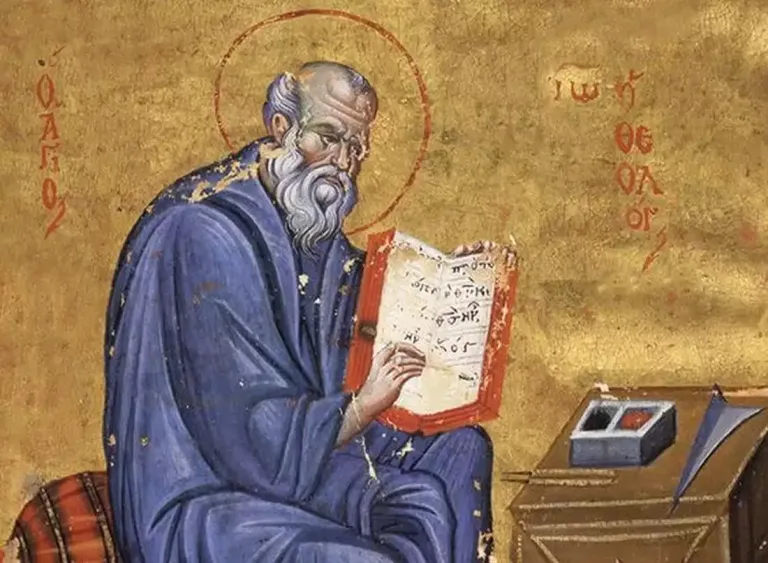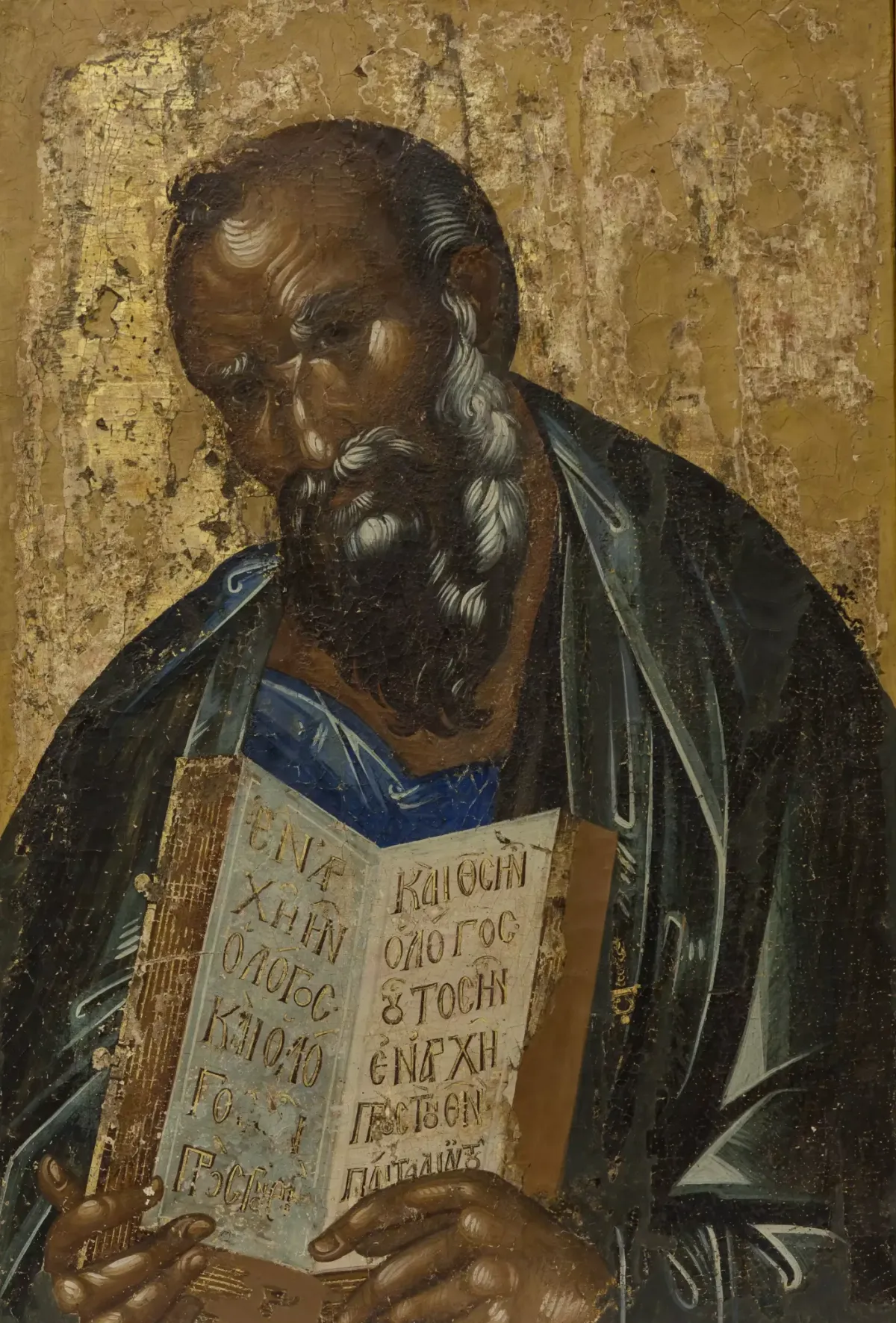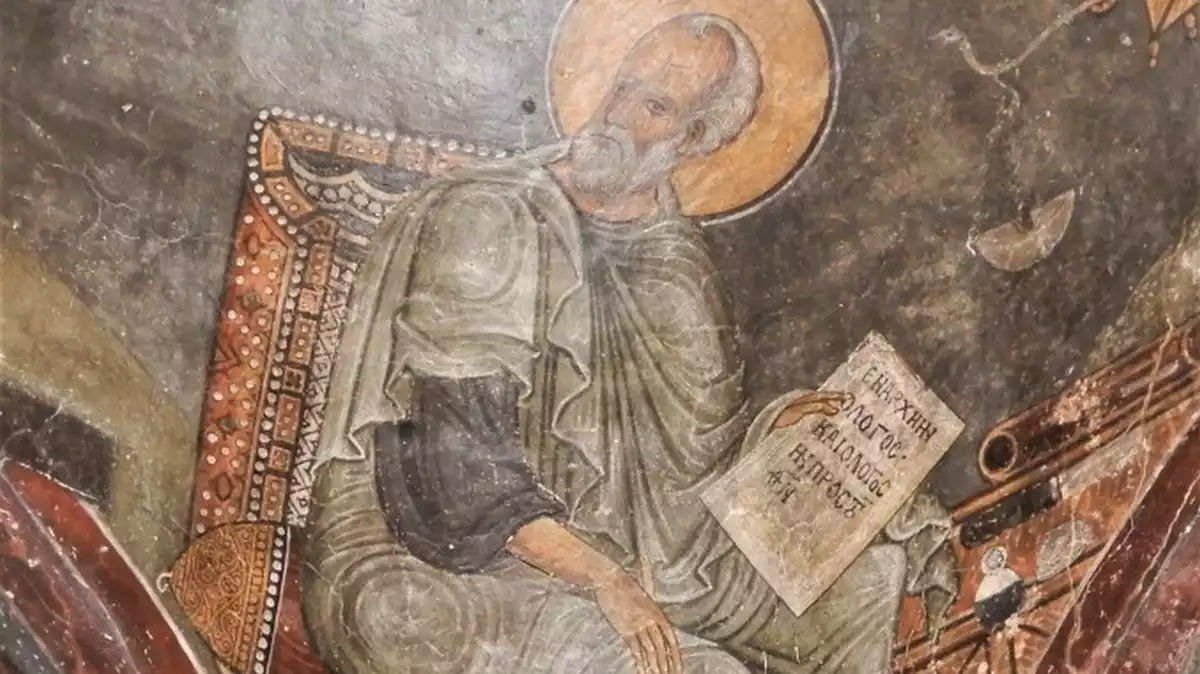
Saint John the Evangelist, traditionally believed to be the author of the Gospel of John, was a prominent figure in early Christianity. His life, spanning from around AD 6 to 100, marks a significant era in Christian history. A disciple of Jesus Christ, John’s contributions extend beyond the authorship of the Gospel; he is also credited with the Book of Revelation and three Epistles in the New Testament. His theological insights and spiritual depth have profoundly influenced Christian thought and doctrine.
Early Life and Calling
Saint John the Evangelist’s early life is shrouded in the mists of the first century. Believed to be the son of Zebedee, a fisherman, and Salome, John and his brother James were among the first disciples called by Jesus. This calling marked a pivotal moment in John’s life, redirecting him from a simple life of fishing to becoming a foundational figure in Christian history.
This transition was not just occupational but deeply spiritual. John’s close relationship with Jesus is evident throughout the New Testament. Often referred to as the ‘beloved disciple,’ his unique perspective and insights into Jesus’ teachings and life events are apparent in his writings. The Gospel of John reflects a distinct style and theological depth, emphasizing Jesus’ divine nature and the concept of eternal life through belief in Him.
John’s presence at key events, such as the Transfiguration and the Crucifixion, underscores his integral role among Jesus’ followers. His account of the Last Supper, detailing the institution of the Eucharist and Jesus’ final teachings, provides a unique and intimate perspective on these pivotal moments in Christian history.

Contributions to Early Christianity
Saint John’s contributions to early Christianity extend beyond his eyewitness accounts. His theological insights, particularly regarding the nature of Christ and the relationship between God and humanity, have shaped Christian thought for centuries.
In his Gospel, John presents a high Christology, portraying Jesus not only as the Messiah but as the pre-existent Word of God, a revolutionary concept in early Christian theology. This portrayal underscores the belief in Jesus’ divinity and his integral role in God’s redemptive plan for humanity.
John’s Epistles, widely read and revered in the early Church, further develop these theological themes. His emphasis on love, truth, and the dichotomy of light and darkness offer practical and spiritual guidance for the early Christian community. These writings reflect a deep understanding of Jesus’ teachings and a heartfelt desire to guide believers in their spiritual journey.
The Book of Revelation, attributed to John, provides a prophetic and apocalyptic vision of the end times. Its symbolic and often enigmatic content has fascinated and perplexed scholars and believers alike. Despite its complexity, Revelation’s message of hope and triumph over evil has resonated throughout Christian history, offering assurance of God’s ultimate victory.
Saint John the Evangelist’s contributions to Christianity cannot be overstated. His writings form a significant part of the New Testament canon, and his theological insights continue to influence Christian thought and practice. His portrayal of Jesus Christ as the incarnate Word of God has shaped the foundation of Christian belief, emphasizing the profound mystery of the Incarnation and the depth of God’s love for humanity.

Theological Themes in John’s Writings
Saint John the Evangelist’s theological contributions are most prominently reflected in his Gospel and epistles. His writings delve into the themes of light versus darkness, love, and truth. John’s Gospel begins with the profound statement, “In the beginning was the Word, and the Word was with God, and the Word was God.” This opening sets the tone for his exploration of Jesus’ divine nature. John’s portrayal of Jesus as the Light of the World and the embodiment of divine love offers a deeper understanding of Christian theology. His emphasis on the importance of love, as seen in his epistles, reinforces the idea that love is central to Christian life and ethics.
John’s Enduring Legacy in Christianity
The enduring legacy of Saint John the Evangelist is evident in the continuing influence of his writings. His Gospel, with its unique perspective on Jesus’ life and teachings, is a cornerstone of Christian scripture. The spiritual depth and theological richness of his writings have inspired countless believers and theologians over the centuries. John’s portrayal of Jesus as the incarnate Word of God, the Light of the World, and the source of eternal life continues to shape Christian understanding and worship.
Saint John the Evangelist’s life and works remain a testament to his profound impact on Christian theology and practice. His unique contributions to the New Testament, through the Gospel of John, his epistles, and the Book of Revelation, offer invaluable insights into the nature of Jesus Christ and the Christian faith. As a beloved disciple and a key figure in early Christianity, his legacy continues to inspire and guide believers across the world.
Feast Day: May 8
Patron Saint of: Writers, Theologians
References
- Culpepper, R. Alan. Anatomy of the Fourth Gospel. Fortress Press, 1983.
- Harris, Stephen L. Understanding the Bible. McGraw-Hill Education, 2007.
- Kysar, Robert. John, the Maverick Gospel. Westminster John Knox Press, 2007.
